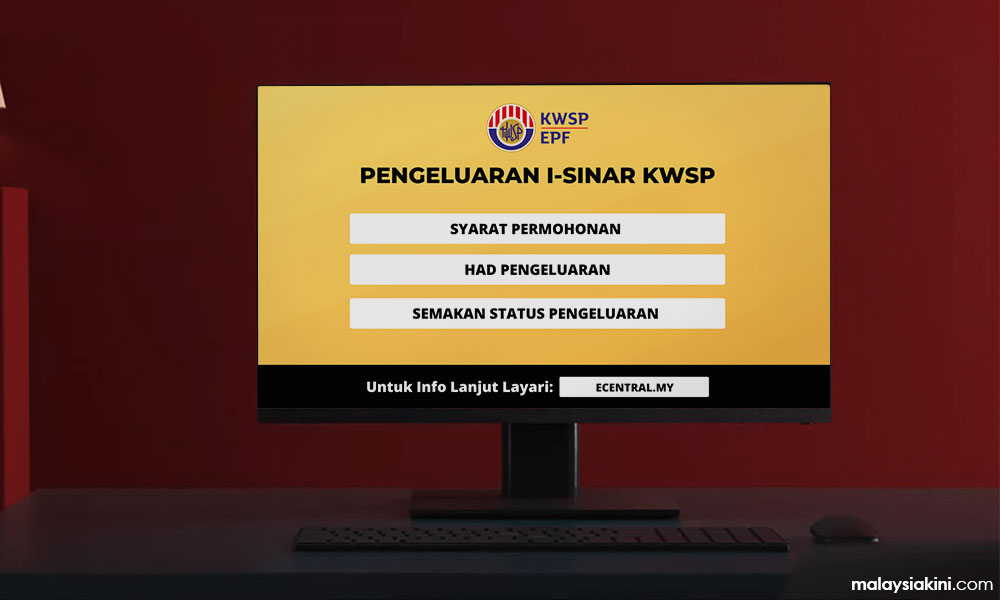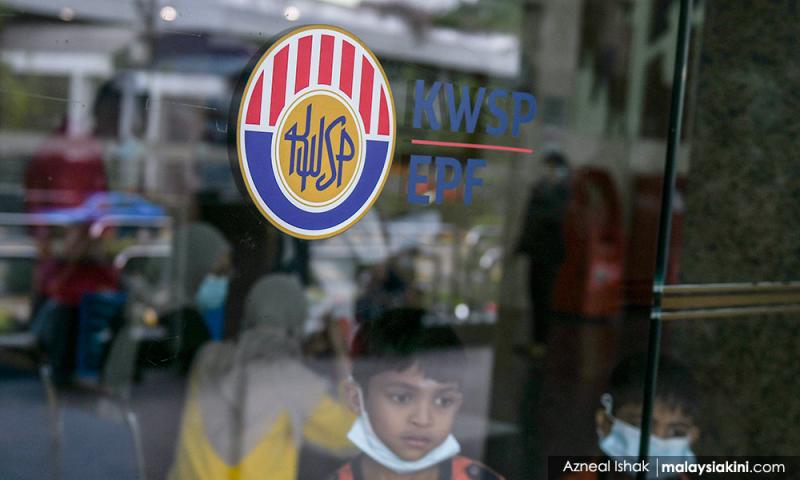LETTER | i-Citra - how the poor will lose their retirement savings
LETTER | Prime Minister Muhyiddin Yassin announced that the Employees' Provident Fund (EPF) will introduce a new withdrawal scheme for its members called i-Citra.
This will allow members to withdraw up to RM5,000 from their retirement funds. Applications will start on July 15 and the first payment is expected to be credited into members' account in August 2021 and i-Citra is expected to channel RM30 billion to the rakyat.
Herein lies the problem: the CEO of the Employees Provident Fund (EPF), Amir Hamzah Azizan, pointed out in an interview with The Edge Markets: 6.3 million people, or 42 percent of the total membership, have less than RM10,000 in their Account 1, which is meant to be retirement savings; and 9.3 million people have less than RM10,000 in Account 2, which is their emergency funds. This is partly due to the low minimum wages in our country.
Many members have reduced the amount of savings after the i-Sinar and i-Lestari withdrawals from their Account 1 and Account 2 respectively to levels that they cannot guarantee their retirement.
The i-Sinar applications came to 6.49 million people, among those who withdrew. Many of them were predominantly from the M40 and B40 range and some of them might have lost their jobs. Furthermore, many working in the informal sector do not contribute to EPF.
But if one cannot afford food even for the next two weeks, there is no need to talk about retirement, correct?

The government must help Malaysians to restore back their savings, post-pandemic. Otherwise, we are looking at a disaster waiting to happen. On a side note, politicians need to look at past election cycles and think of progressive policies to assist Malaysians in the long run.
But how about the Bantuan Khas Covid-19? It is a small cup of water in the season of drought.
Let’s take the example of Mak Cik Kiah. She is still able to sell banana fritters (pisang goreng), although her income might have dropped due to fewer customers, with the Bantuan Khas Covid-19, assuming she is now in the hardcore poor category due to the lockdown restrictions.
Mak Cik Kiah would receive RM500 in August, RM500 in November, and RM300 in December. Her unmarried son living with her would receive RM200 in August and RM300 in December. If her son loses his job, he can apply for a job search allowance from MYFutureJobs and get at least RM300. Their family would enjoy some electricity bill discount from 5-40 percent. However, the amount is barely enough for a family living in PPR Desa Tun Razak, Kuala Lumpur.
Lastly, I have been in social work for five years, and I currently work for a Member of Parliament. The number of people coming to seek help is considerable, the suffering is real, families with young children have gone hungry for days and businesses are forced to shut down. Just yesterday, there was a suicide, hanging from a pedestrian bridge in Balakong. If this does not scare you, I don't know what will.
The Pemulih package is weak relief, i-Citra is problematic for the future. The B40 group would only sink deeper into poverty when their social safety nets become increasingly brittle.
The views expressed here are those of the author/contributor and do not necessarily represent the views of Malaysiakini.
RM12.50 / month
- Unlimited access to award-winning journalism
- Comment and share your opinions on all our articles
- Gift interesting stories to your friends
- Tax deductable
